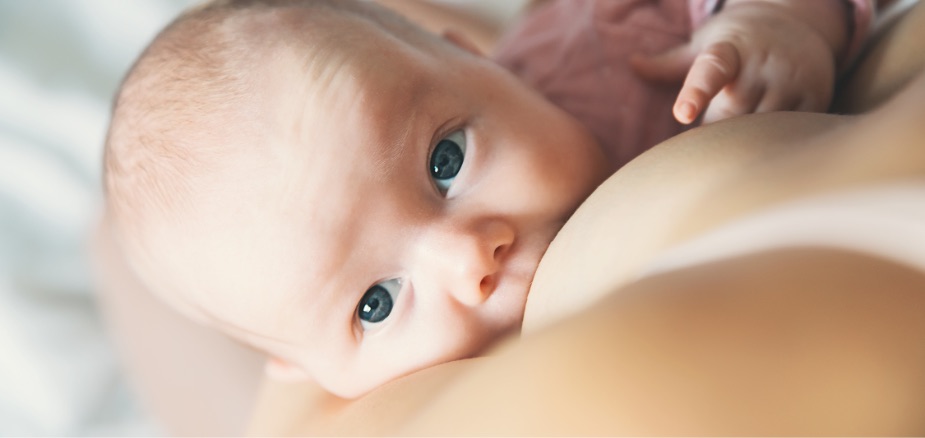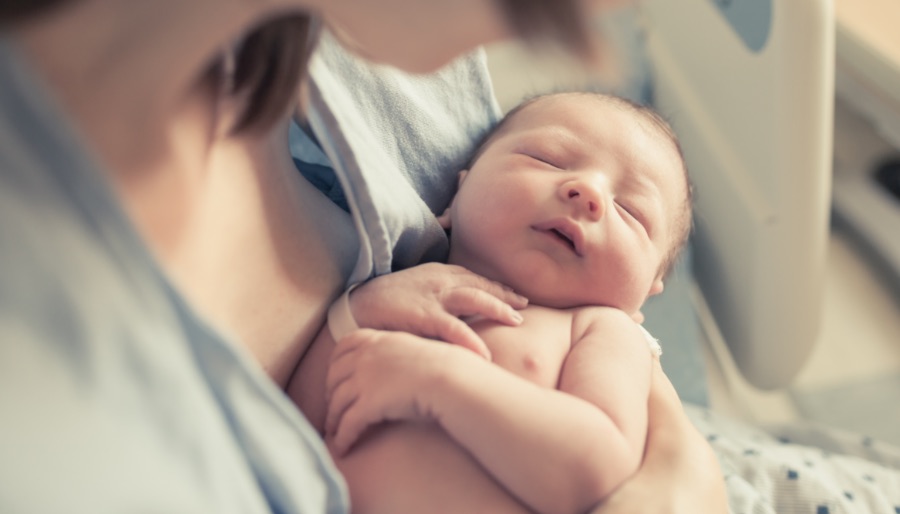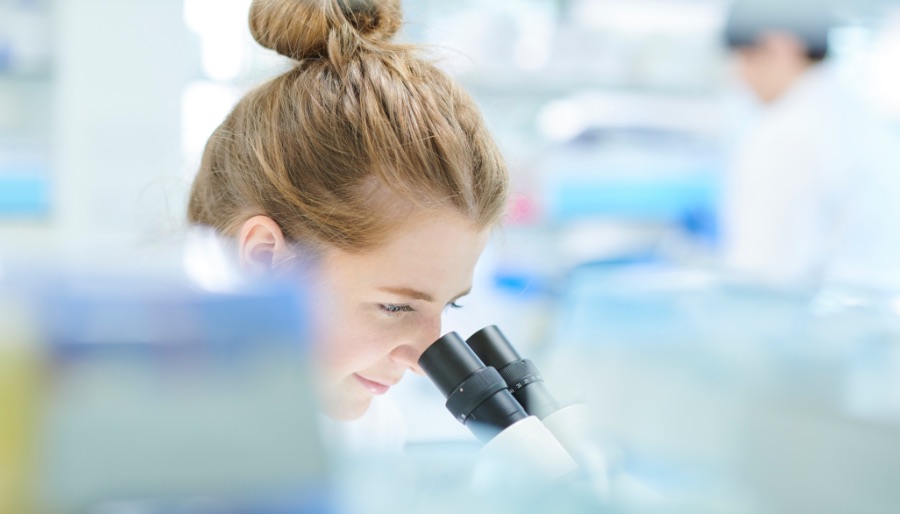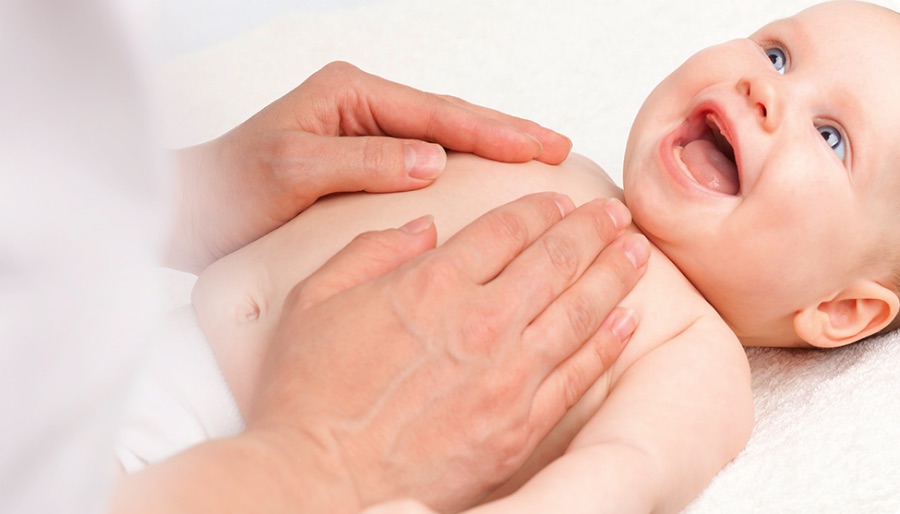母体菌群、分娩方式、围产期接触抗生素、以及母乳喂养等因素均会对婴儿菌群的形成产生很大的影响。母体在孕期和哺乳期服用益生菌,可以有效调节婴儿菌群的定植,从而促进免疫系统的发育。一些研究表明,孕期补充益生菌与降低婴儿的过敏症发生率有关。
孕期和哺乳期补充益生菌
-- 有助婴儿形成健康的免疫系统

曾患过敏症的母亲可以考虑在孕期和哺乳期补充益生菌1, 2, 3, 4, 5, 6
婴儿免疫系统的发育
人类免疫系统的形成始于子宫,并在出生后的36个月内继续发育和成熟。7虽然尚未完全清楚母体微生物组和产前补充益生菌影响婴儿免疫系统的机制,但已经知道菌群在其发育过程中起着巨大的作用。此外,形成先天性免疫应答的时机似乎十分短暂,因此应尽可能抓住该时机。8
孕期、分娩期和哺乳期的母体菌群对婴儿的免疫系统有重要影响
越来越多的证据表明,剖腹产和围产期使用抗生素会导致婴儿的菌群出现失调,从而增加患湿疹和过敏症的风险。与此相反,大量的研究表明,母体补充益生菌与调节免疫应答及降低过敏和湿疹的发生率有关,8这显示了菌群在免疫系统发育过程中扮演重要角色。
母体肠道菌群主要通过以下两种方式影响婴儿的免疫力:
- 抗体、细胞因子和细菌代谢物等来自母体菌群的分子信号,会通过以下方式传给婴儿:
a.胎儿期的胎盘9
b.产后的母乳9
- 可通过增加母体肠道内双歧杆菌的数量(例如通过补充双歧杆菌的方式),来增加顺产时传递给婴儿的双歧杆菌数量。这样可提高双歧杆菌成功定植于婴儿的几率。10
接下来,我们会更详细地展示这两种自然过程,以证明其如何影响婴儿的免疫系统。
1. 母体菌群会在产前和产后影响婴儿免疫系统的发育
婴儿的菌群会受到产前外部因素(例如母亲的心理压力)的影响,11这表明在孕期保持母体菌群的平衡十分重要。11进一步的证据表明,在孕期调控好母体菌群可对婴儿的健康起关键作用。12,13
多项随机双盲对照试验表明,母体补充益生菌有助于婴儿维持健康的肠道和免疫系统。这些试验在孕期和哺乳期(如果非母乳喂养,则喂养添加了LGG®鼠李糖乳酪杆菌菌株的配方奶)对患有特应性疾病家族史的母体补充LGG®鼠李糖乳酪杆菌菌株。与安慰剂组相比,服用了LGG®鼠李糖乳酪杆菌菌株的母体所生产的婴儿,特应性湿疹的发生率降低了50%。1在4岁1,2和7岁时的随访中,发现此效果依然存在。1,3同样地,产前和产后母体补充LGG®鼠李糖乳酪杆菌菌株、BB-12TM动物双歧杆菌乳亚种菌株和LA-5TM嗜酸乳杆菌菌株,与母乳喂养婴儿的特应性皮炎的发生率降低有关。4
产后喂养母乳也会促进婴儿免疫系统的发育,原因是某些来自母体肠道的细菌和代谢物会进入乳腺,从而把母体菌群传递给婴儿。9,14小鼠模型进一步证实了这一点——因为在乳腺组织和乳汁中发现了益生菌。15母体补充益生菌可改变母乳的菌群成分。5,16一些研究表明,在孕期和哺乳期食用LGG®鼠李糖乳酪杆菌菌株与母乳中TGFβ2(转化生长因子β2)浓度的增加以及婴儿过敏性湿疹发生率的降低有关。16TGFβ2是产生母乳诱导型免疫耐受的重要因素,17因为TGFβ2会刺激加速未成熟肠道免疫系统的完善。18,19 母体补充LGG®鼠李糖乳酪杆菌菌株和BB-12TM动物双歧杆菌乳亚种菌株后,同样观察到母乳中的TGFβ2浓度出现增加现象。5

2. 顺产可促进母体细菌在婴儿肠道中的定植
孕期1到3个月,母体肠道菌群发生了显著变化,菌种丰度降低,双歧杆菌数量增加, 20,21而孕酮是妊娠晚期肠道菌群产生这种自然变化的诱导物。21母体菌群的这些变化可以影响婴儿免疫系统的发育。
顺产时,母体菌群的这些变化可以直接影响婴儿菌群。在顺产儿中,可发现特定的经母体传递给婴儿的双歧杆菌菌株,而在剖腹产的婴儿中,则无法找到这些特定的双歧杆菌菌株。这表明在产道中,母体和婴儿之间发生了重要的细菌传递。22一项对母体菌群传递所开展的研究证明了这一点,因为该研究发现,特定的细菌种类(其对婴儿的菌群至关重要)几乎总是在母体和顺产儿之间共享,23而且这些菌群的传递作用至少会持续一年。23当母体在婴儿出生前的数周内食用LGG®鼠李糖乳酪杆菌菌株时,会增加新生儿的双歧杆菌的多样性,6这很可能是由于乳杆菌的双歧效应所导致。24,25,26,27因此,母体补充益生菌可以有助于顺产儿的早期细菌定植。6,22,23
母体补充益生菌是调节和维持婴儿免疫系统的重要机制1, 2, 3, 4, 5, 6
无论产前还是产后,婴儿的免疫系统都会受到母体菌群的影响
这些观察结果表明,无论是在产前还是产后,母体肠道菌群和婴儿免疫系统之间都存在着密切的关系。而且这也表明,母体在孕期和哺乳期补充益生菌可提高婴儿的免疫力。
BB-12 ™,LA-5 ™和 LGG ®是科汉森有限公司的商标。TM代表科汉森商标长期使用,具有较高知名度但尚未在中国获得注册或已在申请注册过程中的商标。®代表科汉森长期使用、具有较高知名度并已在中国获得注册的商标。
免责声明:本文章的目的是提供有关益生菌的信息,并不表示文章中提到的任何物质可用来诊断、减轻、治疗、治愈或预防任何疾病。如果您正面临具体的医疗问题,请务必咨询医生或专业人士。本文引用的有关文件、数据或研究结果仅供参考,不构成对任何人的直接建议或指导。所引用的文献、资料或研究仅为作者的观点,并不代表科汉森的立场。如需转载、节选、链接或以任何其他方式引用本文章内容,请确保符合中国法律法规,科汉森对引用本文章内容所产生的任何法律后果不负法律责任。
BB-12™双歧杆菌菌株是一株全球广泛记载的益生双歧杆菌菌株,其受到了广泛研究,并证实与人体多个健康领域的改善有关。
BB-12™是科汉森有限公司的商标
LGG®鼠李糖乳杆菌菌株是一株全球广泛记载的益生菌菌株,并证实与所有年龄段和许多健康领域的益处相关,包括胃肠道、免疫系统和口腔健康。
LGG®是科汉森有限公司的注册商标
研究表明,LA-5™嗜酸乳杆菌菌株和BB-12™双歧杆菌菌株联用,对胃肠道健康等具有益处。
LA-5™和BB-12™是科汉森有限公司的商标
参考文献 打开 关闭
- Kalliomaki M, et al. Probiotics in primary prevention of atopic disease: a randomised placebo-controlled trial. Lancet. 2001;357(9262):1076-9. (PubMed)
- Kalliomaki M, et al. Probiotics and prevention of atopic disease: 4-year follow-up of a randomised placebo-controlled trial. Lancet. 2003;361(9372):1869-71. (PubMed)
- Kalliomaki M, et al. Probiotics during the first 7 years of life: a cumulative risk reduction of eczema in a randomized, placebo-controlled trial. J Allergy Clin Immunol. 2007;119(4):1019-21. (PubMed)
- Dotterud CK, et al. Probiotics in pregnant women to prevent allergic disease: a randomized, double-blind trial. Br J Dermatol. 2010;163(3):616-23. (PubMed)
- Huurre A, et al. Impact of maternal atopy and probiotic supplementation during pregnancy on infant sensitization: a double-blind placebo-controlled study. Clin Exp Allergy. 2008;38(8):1342-8. (PubMed)
- Gueimonde M, et al. Effect of maternal consumption of lactobacillus GG on transfer and establishment of fecal bifidobacterial microbiota in neonates. J Pediatr Gastroenterol Nutr. 2006;42(2):166-70. (PubMed)
- Walker WA. The importance of appropriate initial bacterial colonization of the intestine in newborn, child, and adult health. Pediatr Res. 2017;82(3):387-95. (PubMed)
- Rautava S, et al. Microbial contact during pregnancy, intestinal colonization and human disease. Nat Rev Gastroenterol Hepatol. 2012;9(10):565-76. (PubMed)
- Macpherson AJ, et al. How nutrition and the maternal microbiota shape the neonatal immune system. Nature Reviews Immunology. 2017;17(8):508-17. (PubMed)
- Mueller NT, et al. The infant microbiome development: mom matters. Trends Mol Med. 2015;21(2):109-17. (PubMed)
- Zijlmans MA, et al. Maternal prenatal stress is associated with the infant intestinal microbiota. Psychoneuroendocrinology. 2015;53:233-45. (PubMed)
- Nyangahu DD, et al. Disruption of maternal gut microbiota during gestation alters offspring microbiota and immunity. Microbiome. 2018;6(1):124. (PubMed)
- Roduit C, et al. Prenatal animal contact and gene expression of innate immunity receptors at birth are associated with atopic dermatitis. J Allergy Clin Immunol. 2011;127(1):179-85, 85.e1. (PubMed)
- Martı́n Ro, et al. The commensal microflora of human milk: new perspectives for food bacteriotherapy and probiotics. Trends in Food Science & Technology. 2004;15(3-4):121-7. (Source)
- de Andrés J, et al. Physiological Translocation of Lactic Acid Bacteria during Pregnancy Contributes to the Composition of the Milk Microbiota in Mice. Nutrients. 2017;10(1):14. (PubMed)
- Rautava S, et al. Probiotics during pregnancy and breast-feeding might confer immunomodulatory protection against atopic disease in the infant. J Allergy Clin Immunol. 2002;109(1):119-21. (PubMed)
- Verhasselt V, et al. Breast milk-mediated transfer of an antigen induces tolerance and protection from allergic asthma. Nat Med. 2008;14(2):170-5. (PubMed)
- Rautava S, et al. TGF-beta2 induces maturation of immature human intestinal epithelial cells and inhibits inflammatory cytokine responses induced via the NF-kappaB pathway. J Pediatr Gastroenterol Nutr. 2012;54(5):630-8. (PubMed)
- Rautava S, et al. Breast Milk-Transforming Growth Factor-β2 Specifically Attenuates IL-1β-Induced Inflammatory Responses in the Immature Human Intestine via an SMAD6- and ERK-Dependent Mechanism. Neonatology. 2011;99(3):192-201. (PubMed)
- Koren O, et al. Host remodeling of the gut microbiome and metabolic changes during pregnancy. Cell. 2012;150(3):470-80. (PubMed)
- Nuriel-Ohayon M, et al. Progesterone Increases Bifidobacterium Relative Abundance during Late Pregnancy. Cell Rep. 2019;27(3):730-6.e3. (PubMed)
- Makino H, et al. Mother-to-infant transmission of intestinal bifidobacterial strains has an impact on the early development of vaginally delivered infant's microbiota. PLoS One. 2013;8(11):e78331. (PubMed)
- Korpela K, et al. Selective maternal seeding and environment shape the human gut microbiome. Genome Res. 2018;28(4):561-8. (PubMed)
- Tang W, et al. In vitro digestion and fermentation of released exopolysaccharides (r-EPS) from Lactobacillus delbrueckii ssp. bulgaricus SRFM-1. Carbohydr Polym. 2020;230:115593. (PubMed)
- Russo M, et al. Lactobacillus fermentum CRL1446 Ameliorates Oxidative and Metabolic Parameters by Increasing Intestinal Feruloyl Esterase Activity and Modulating Microbiota in Caloric-Restricted Mice. Nutrients. 2016;8(7). (PubMed)
- Bello FD, et al. In vitro study of Prebiotic Properties of Levan-type Exopolysaccharides from Lactobacilli and Non-digestible Carbohydrates Using Denaturing Gradient Gel Electrophoresis. Syst Appl Microbiol. 2001;24(2):232-7. (PubMed)
- Kang J-E, et al. A Novel Lactobacillus casei LP1 Producing 1,4-Dihydroxy-2-Naphthoic Acid, a Bifidogenic Growth Stimulator. Prev Nutr Food Sci. 2015;20(1):78-81. (PubMed)



